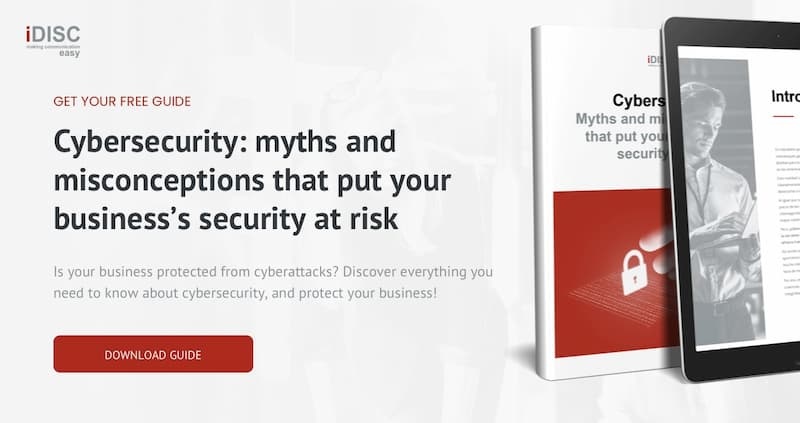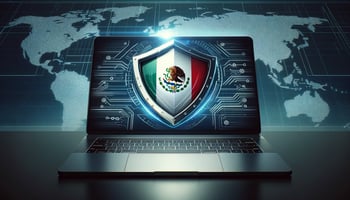Companies have to face no small amount of IT security threats, and handling these properly is often not an easy task.
Professionals in the cybersecurity field, just like in other rapidly changing industries, require an extensive technical background to be able to accurately assess what risks our organization’s assets may be exposed to.
Considering this, it only makes sense that the best option is to have an expert handle the advising, consulting and implementation process for effective security systems, which will help protect our IT systems.
Some decisions can only be made if we possess the right amount of technical knowledge for identifying the appropriateness of the proposed actions.
In this sense, not having faced major cybersecurity problems beforehand, or receiving bad technical advice, may lead us to oversimplify the scope of our solutions or believe we have all the risks fully covered, when this is not the case.
We understand the damage an organization may suffer by not knowing these risks and by not having the right cybersecurity for tackling them at all levels, whether risks are coming from the external online environment or appear as a result of internal activities.
This is why this article will talk about 7 cybersecurity misconceptions you need to break away from if you want to protect the integrity of the digital resources storing your company’s valuable information.
Keep reading!
7 myths about cybersecurity
As we were saying, this lack of awareness may lead us to engage in unfounded assertions such as:- My company has a firewall and my antivirus is up to date, so I doubt I need any further protection for my data.
- I’m using a well-proven cloud-based mail service, which means I’m adequately protected against phishing attacks.
- My Wi-Fi password is extremely strong. No one will be able to enter my network.
- No one cares about my data, so hackers won’t target me.
- Besides management, company users have severely restricted Internet access, meaning the risk is very limited.
- Our important information is on our servers, which employ advanced antivirus software.
- Malicious emails are easily detected.
After reading these seven assertions, you may consider them to be of little importance. You may even dare to blindly believe in them, but you would be mistaken. If you ever do suffer a cyberattack, reflecting on these points will definitely make more sense.
On the other hand, if you feel worried or uncertain after reading them, here you will find some further considerations which may help you re-examine your approach to your company’s cybersecurity.
Cybersecurity considerations
- Firewalls and antivirus software are definitely important for your infrastructure’s cybersecurity, but are of course not the only thing that matters. If we think about them, either solution may not be effective, depending on other factors we need to consider:
- Did you know that most threats go undetected when using a signature-based system such as the one used by conventional antivirus software? Do you know what an EDR is? Does your network’s antivirus software feature an EDR engine? Here an EDR is much more than an antivirus software because it continuously monitors and responds to complex threats.
- Did you know that today almost all Internet traffic is encrypted? Is your firewall set up to check for encrypted traffic to detect threats? If this is not the case, then its array of security features will do little, no matter how much you invested in the product you are currently using.
- Did you know that the leading cloud-based email providers suggest using third-party solutions for more effective protection for incoming emails? Do you think this would be the case if the basic solution already ensured sufficient protection?
- Did you know that after the human factor, wireless connectivity is often one of the weakest links in a company’s security? Do you think not a single one of the thousands of YouTube videos on how to a hack wireless network will work to compromise yours?
- Did you know that lists of compromised servers and networks are sold in bulk to hackers to carry out other malicious activities, including double extortion ransomware which they can use against you?
- Did you know that management is targeted most often during spear phishing attacks? Privileged access users represent the greatest security risk, and this is where hackers put in most of their time when preparing an attack.
- Where do users usually browse the Internet? On a server’s console or on a user’s PC? The gateway to our data does not have to be through one of our most valuable assets.
- Although phishing techniques have evolved and improved significantly over time, there are professionals who are well-equipped to detect them. But, are we sure that all of our staff are just as prepared to recognize them? All it takes is one person to swallow the bait for all our data to be compromised.

If you have read this far, your sense of how important cybersecurity is may have changed. If some of these questions or answers have worried you, we are going to help you get back on the road to peace of mind through this e-Book.
We hope you found this article useful and are able to strengthen your company’s cybersecurity following these tips.
Check out our blog for more interesting content or get in touch so we can help you.
.jpg)



